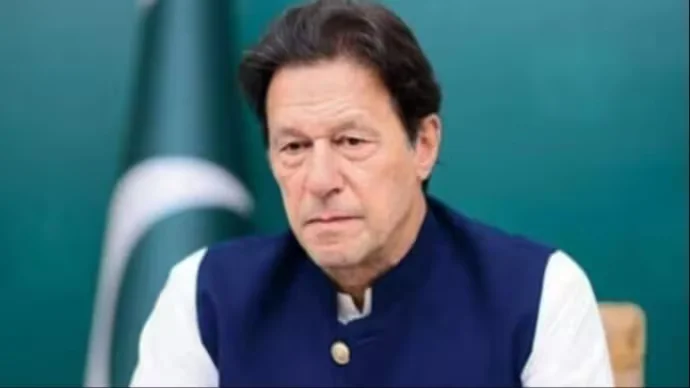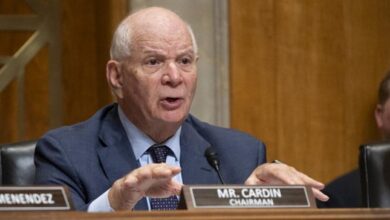Imran Khan sentenced to 10 years in jail for leaking state secrets
The Pakistan Tehreek-e-Insaf (PTI) founder Imran Khan and Vice Chairman Shah Mahmood Qureshi were handed a 10-year prison sentence in the cipher case by a special court in Pakistan on Tuesday.

In a significant development, former Pakistan Prime Minister Imran Khan has been sentenced to a 10-year jail term after being found guilty of leaking state secrets. The verdict, handed down by the judicial system, raises questions about the implications for Pakistan’s political landscape and the future trajectory of Imran Khan’s political career.
Key Developments:
- Leaking State Secrets Charges: Imran Khan faced charges related to the leaking of classified state secrets during his tenure as the Prime Minister of Pakistan. The charges alleged a breach of national security and confidentiality, prompting a legal investigation into the matter.
- Judicial Verdict: The judicial system in Pakistan has delivered a verdict, sentencing Imran Khan to 10 years in prison. The severity of the sentence reflects the gravity of the charges and the legal implications of compromising state secrets.
Implications for Pakistan’s Political Landscape:
- Political Fallout: Imran Khan’s sentencing has immediate and far-reaching implications for Pakistan’s political landscape. The charismatic leader, known for his role in cricket and later in politics, has been a polarizing figure, and his conviction is likely to trigger political upheaval.
- Impact on Governance: The conviction of a former prime minister for leaking state secrets raises concerns about governance and national security protocols during Imran Khan’s leadership. The fallout may prompt a reassessment of security measures and practices within the Pakistani government.
Possible Political Repercussions:
- Political Unrest: The sentencing of Imran Khan is expected to lead to political unrest and protests from his supporters. The opposition may also leverage the situation to push for political reforms and changes within the government.
- Leadership Vacuum: With the imprisonment of a prominent political figure like Imran Khan, there is a potential leadership vacuum within his political party, Pakistan Tehreek-e-Insaf (PTI). The party may need to navigate internal challenges and reorganize its leadership structure.
International Response:
- Global Scrutiny: The international community is closely monitoring the developments surrounding Imran Khan’s sentencing. The case raises questions about the rule of law, democratic processes, and the handling of sensitive information within Pakistan.
- Diplomatic Relations: Depending on how the Pakistani government manages the aftermath of Imran Khan’s conviction, there could be diplomatic repercussions. Key allies and neighboring countries may assess the stability and governance of Pakistan in the wake of this significant development.
The sentencing of former Prime Minister Imran Khan to 10 years in jail for leaking state secrets marks a pivotal moment in Pakistan’s political history. As the nation grapples with the fallout, the coming weeks and months will be crucial in determining the political landscape and the potential reshaping of power dynamics within the country. The international community will closely observe how Pakistan navigates this period of political and legal turbulence.




